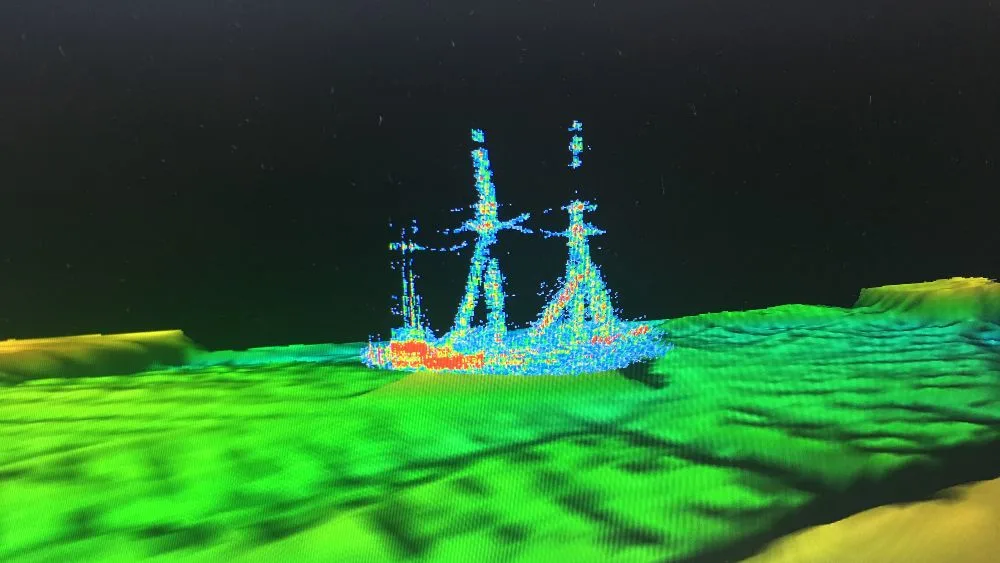
126-year-old, 'well-preserved' ship found in Lake Huron
Cool waters in Lake Huron have kept the ship well-preserved.
Scientists from the National Oceanic and Atmospheric Administration (NOAA) have discovered the remains of a 126-year-old shipwreck in Lake Huron, remarkably well-preserved for over a century, thanks to the cool waters in the Great Lakes. It is sitting upright on the lakebed with its three masts still standing.
The Ironton, a 58-metre-long ship, sank in 1894 after colliding with a grain hauler.
It sank quickly - dragging the captain and six sailors underwater before the lifeboat could be detached. Only two crewmembers survived.
"The discovery illustrates how we can use the past to create a better future," Jeff Gray, Thunder Bay National Marine Sanctuary superintendent says in a statement.
"Using this cutting-edge technology, we have not only located a pristine shipwreck lost for over a century, we are also learning more about one of our nation's most important natural resources—the Great Lakes. This research will help protect Lake Huron and its rich history."
NOAA did not disclose the ship's location in hopes of keeping curious divers away while completing the documentation process.
Thunder Bay National Marine Sanctuary plans to develop exhibits and multimedia products that will help tell the story of the Ironton. In the future, a deep-water monitoring buoy will sit in the water to mark its location and guide divers to the ship.
Visit our Complete Guide to Spring 2023 for an in-depth look at the Spring Forecast, tips to plan for it and much more!
"The discovery of Ironton inspires us to keep exploring," Gray says.
"We will continue to map Thunder Bay National Marine Sanctuary, and this research will ultimately lead to even more discoveries about the Great Lakes and the unique collection of shipwrecks that rest on the lakebed."
Thumbnail: Image of the schooner-barge Ironton as it sits on the lake floor today. This image is a point cloud extracted from water column returns from multibeam sonar. (Ocean Exploration Trust/NOAA).











